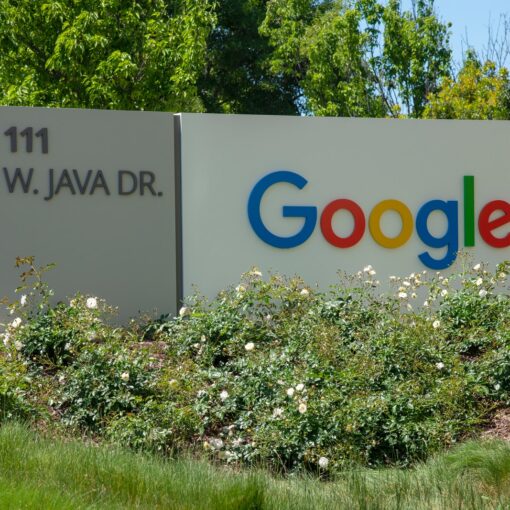
PPC marketing is the modern equivalent of standing on a street corner, shouting through a megaphone, and hoping the right people hear you. Only now, instead of spending money on a flashy sign, you’re burning through your budget with every click, hoping it’s worth the price of admission.
If you’re not careful, PPC can turn into a black hole where your hard-earned dollars go to die, leaving you with nothing but a sinking feeling and a spreadsheet full of regrets.
But fear not! Wasting your PPC budget isn’t a requirement—though it *is* surprisingly easy if you’re not paying attention.
The good news? You don’t need a PhD in digital marketing to avoid common mistakes and make the most out of every penny. Let’s dive into how you can stop tossing money into the advertising abyss and start seeing actual returns on your investment.
With the increased use of mobile technology, more people are using their phone to search for what they need. This has led to a decrease in the number of people who turn to desktop searches. If you’re not utilizing PPC marketing, now is the time to start!
If you’re not sure what to do with your PPC marketing budget, then don’t waste it. Before you can even use that money, there is a lot of work that needs to be done in order to unleash the power behind your carefully crafted ads and pinpointed targeting. With a few simple tips and tricks, all of this work can be done for you.
There are many reasons why companies should not squander their PPC marketing budget. The first reason is that the company will not be able to reach as many consumers as they desire.
This lack of coverage can have a significant impact on revenue, especially if the company relies heavily on its products or services for revenue. The second reason is that it can lead to frustration and eventually attrition among staff members who are burdened with the responsibility of making sure that the PPC campaign stays afloat.
PPC advertising has been around for a long time when compared to other digital marketing tactics, however it has seen some changes along the way. However, there is still a negative reputation associated with pay-per-click advertising that dates back many years, before we had access to advanced analytics tools and the resources to fine-tune every aspect of a campaign to perfection.
The perception is that pay-per-click advertising is a high-risk endeavor, particularly for small businesses with limited advertising resources.
PPC used to be a daunting prospect for small firms with limited resources.
PPC used to be a source of horror tales for company owners who, believing it was a sure bet, sunk every last penny of their yearly marketing budgets into it. It may still be a source of horror stories.
After all, you only pay when someone clicks on your link, so there is no way to lose money. Except that it is, and these unlucky company owners made the mistake of doing so. Anyone who hears a tale that gets repeated as often as some variation of that one did is going to send some marketers fleeing for their lives.
Because of these tales, there was widespread notion among companies just getting started in the field of digital marketing that PPC was a danger zone where your money would vanish, and you would be left with nothing to show for your efforts.
PPC was considered to be a luxury reserved for large corporations with thousands of dollars in extra cash to spend on advertising.
PPC is now feasible for the majority of people thanks to new technologies and knowledge.
Many people believe that PPC advertising is too expensive for their budgets. They are unsure of how to use the technology to their advantage, and they don’t know if it will work with their business model.
The good news is that new technologies have made PPC advertising feasible for the majority of people. To understand how, you need to know three important things about PPC advertising: what it is, how it works, and why you should consider using it.
PPC is now feasible for the majority of people thanks to new technologies and knowledge. People can take advantage of different ways to build a campaign and analyze your data. If you’re interested in learning how PPC could help your business, then keep reading.
Founded in 2000, Google Ads is the original PPC platform that was built exclusively for Google Search Advertising.
People are more aware than ever before of the importance of doing keyword research to get their business in front of the right audience on Google. The reality, however, is that many people don’t know where to start with this task.
For many years, it seemed like PPC was only for large businesses with deep pockets. Luckily, that’s not the case anymore, thanks to new technologies and knowledge that has become available.
This has changed today, with pay per click (PPC) proving to be an exceptionally effective digital marketing approach for companies of all shapes and sizes. This is mostly due to the fact that we have an abundance of resources at our disposal.
The process of selecting keywords, optimizing ads, crafting headlines, and navigating every inch of the Google Ads Keyword Planner Tool are all covered in detail in these tutorials.
Not to mention the many third-party tools that allow you to compare various ad versions against one another in order to determine which one connects with your target demographic, resulting in much improved results.
You don’t want to be a wasteful spender of your PPC budget, however. You want to make the most of every dollar you have. In spite of this, there are still certain typical marketing errors that marketers fall into that aren’t yielding the greatest outcomes for their efforts.
Visitors are sent to your home page when they click on a link. The home page is the most natural entrance point for a visitor who clicks on a PPC ad, but too many firms operate under the supervision of an experienced PPC specialist or without any previous knowledge of PPC strategies and tactics.
However, it is possible that your home page is not optimized for the exact keyword searches that brought people to your site. This leads to visitors believing they are on a totally unrelated website, which causes them to leave.
Because the CPC is so high, it is hard to get a meaningful return on investment. It goes without saying that you desire a return on your investment. In contrast, attempting to compete for important keywords that established businesses are already dominating might rapidly deplete your marketing budget without yielding any positive benefits for you. Maintain a focus on more specific keywords that are utilized by searchers who are ready to take action.
Continuing to use keywords with poor click-through rates for an excessive amount of time. This emphasizes the significance of regularly assessing your campaigns’ effectiveness. If you don’t pay attention, your advertising will be relocated to less-optimal placements and get even less attention.
Don’t simply set it and forget it. The moment has come to figure out why your advertisements aren’t generating any clicks on your website. Examine the keyword relevancy, the ad headlines, and the content.
I’m not picking and choosing day portions. Day parts are blocks of time throughout the course of a day, such as from 9:00 a.m. to 5:00 p.m., during which you may schedule your advertisements to appear.
In most circumstances, running advertisements overnight is not advantageous for a small-budget marketer, unless your target audience is likely to be performing searches in the middle of the night. Businesses-to-business enterprises, for example, seldom have a compelling need to run advertisements at 3 a.m. on a weekday.
Using wide, pricey keywords is a bad idea. Many rookie PPC marketers are tempted to target wide phrases that are almost difficult to rank for in organic search, which is a risky strategy.
After all, the purpose of pay-per-click advertising (PPC) is to increase your chances of being seen in search results for relevant keywords that might otherwise take years to rank for organically. However, in the imagination of a searcher, such broad phrases may frequently be associated with hundreds of distinct particular intents.
A search for “island resort” does not always imply that someone is seeking for all-inclusive island resort holiday packages in Antigua or other Caribbean destinations. Always remember to be explicit and to take the buyer’s goal into consideration.
Negative terms are not being capitalized. In addition to focusing on more precise search keywords that are extremely relevant to your target audience and indicative of the fact that the searcher’s objectives align with the offer on your landing page, you should notify Google which searches you do not want your advertisements to display in.
Negative keywords are those that would imply that the searcher is seeking for anything other than what you’re presenting in your advertisement. The alternative is to waste time and money by clicking in circles.
Aside from these, there are several additional strategies and tactics you may use to guarantee the success of your PPC campaign and a corresponding return on your investment. Reading up on the tools accessible to you inside Google Ads and being familiar with the tactics that pros use to achieve results is a good idea before beginning your first pay-per-click campaign.
A respectable PPC firm is a wise investment, at the very least to get your early campaigns up and running and to educate you to the process – particularly if all the discussion about click-through rates, keywords, and conversion rates has you feeling like a fish in a sea of sharks.
At the end of the day, PPC marketing isn’t about spending more, it’s about spending *smart*. Think of it as a marathon, not a sprint—unless, of course, you enjoy watching your budget evaporate faster than a snowman in July. By keeping a close eye on your campaigns, optimizing consistently, and focusing on what truly works, you’ll avoid the heartbreak of a blown budget.
So, before you throw another dollar into the PPC wishing well, take a step back and fine-tune your approach. Because nothing’s worse than watching your marketing dollars swirl down the drain—and realizing too late that you could’ve gotten more clicks for your buck.
Suggested Links:
How to Maximize Your PPC Budget
http://www.wordstream.com/blog/ws/ppc-budget-management
Avoid These Common PPC Mistakes
http://www.searchenginejournal.com/ppc-mistakes
Guide to Efficient PPC Marketing
http://www.hubspot.com/ppc-budget-tips

Kevin Collier is a seasoned writer and technology enthusiast with a passion for exploring the latest industry trends. With a background in digital marketing and content creation, he brings insightful perspectives to imhits.com on emerging technologies, innovations, and their impact on everyday life. When he’s not writing, Kevin enjoys experimenting with new gadgets and sharing his knowledge with fellow tech aficionados.





